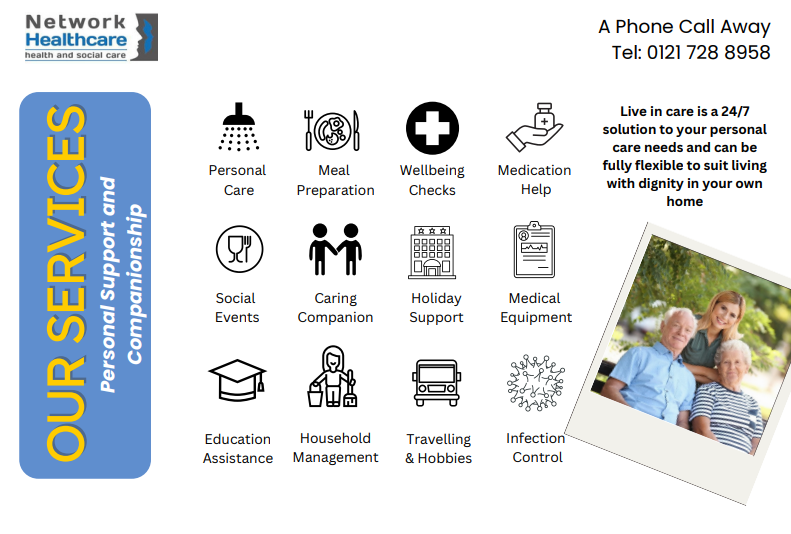
Latest Live in Care News
Speak to a Live in Care Advisor - free consultation
Posted around 4 months ago •
Or copy link
When it comes to caring for our loved ones, the decision can be emotionally charged and deeply personal. The choice between traditional residential care and live-in care is one that families often grapple with. In this article, we shed light on the benefits of live-in care and homecare, emphasizing the importance of informed decisions and regulated care providers.

What Is Live-In Care?
Live-in care involves having a trained and compassionate carer move into your home to provide round-the-clock support. Unlike residential care homes, where individuals must adapt to communal living, live-in care allows your loved one to remain in their cherished environment. Here’s what live-in care typically encompasses:
- Personal Care: Assistance with bathing, dressing, and maintaining personal hygiene.
- Health and Well-Being: Medication management, meal preparation, and support with physiotherapy or mobility.
- Companionship: A friendly presence to combat loneliness and foster emotional well-being.
- Housekeeping Services: From laundry to grocery shopping, ensuring a comfortable home.
Why Choose Live-In Care?
- Independence: Your loved one can stay in their own home, surrounded by familiar comforts and routines.
- Personalized Attention: Unlike care facilities, live-in carers focus solely on one person’s needs.
- Companionship: Emotional connection and shared moments enhance quality of life.
- Maintain Hobbies and Routines: Continue enjoying favourite activities and social interactions.
- Avoiding Change: Live-in care minimizes disruption, allowing daily life to remain consistent.
The Importance of Regulated Care Providers
When considering live-in care, it’s crucial to choose a regulated care provider. Here’s why:
- Quality Assurance: Regulated providers adhere to strict standards, ensuring high-quality care.
- Vetted Carers: Carers undergo background checks, including Disclosure and Barring Service (DBS) checks.
- Training and Qualifications: Carers receive proper training and possess relevant qualifications.
- Consistent Oversight: Regulatory bodies monitor and assess providers regularly.
What Does a Live-In Carer Normally Do?
Live-in carers can undertake a range of agreed responsibilities tailored to individual needs:
- Mobility Assistance: Helping patients move around safely.
- Personal Care: Assisting with grooming, dressing, and toileting.
- Meal Preparation: Cooking nutritious meals and ensuring dietary needs are met.
- Medication Management: Administering medications as prescribed.
- Companionship: Providing emotional support and engaging in conversations.
- Household Tasks: Light housekeeping, laundry, and grocery shopping.
Family Members at a Distance: The Importance of Full Checks
For families living far from their loved ones, thorough checks are essential:
- Provider Verification: Ensure the care agency is registered with the Care Quality Commission (CQC) or equivalent regulatory body.
- Carer Vetting: Confirm that carers have undergone DBS checks and possess relevant qualifications.
- References: Request references from previous clients to gauge the carer’s reliability and compatibility.
For Peace of Mind
Live-in care offers a compassionate alternative to residential care, allowing your loved one to age gracefully in their own home. By choosing regulated providers and understanding the role of live-in carers, families can make informed decisions during challenging times.
Remember, it’s not just about the services provided—it’s about finding a carer who respects your loved one’s dignity, privacy, and wishes.

